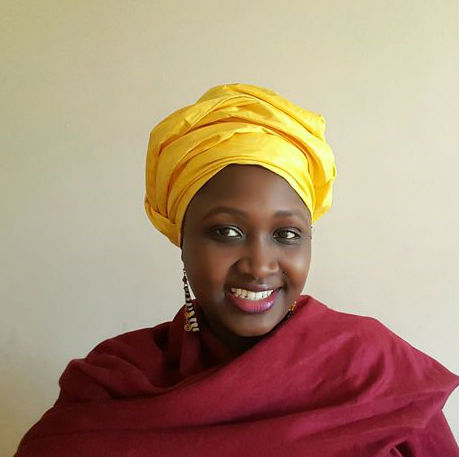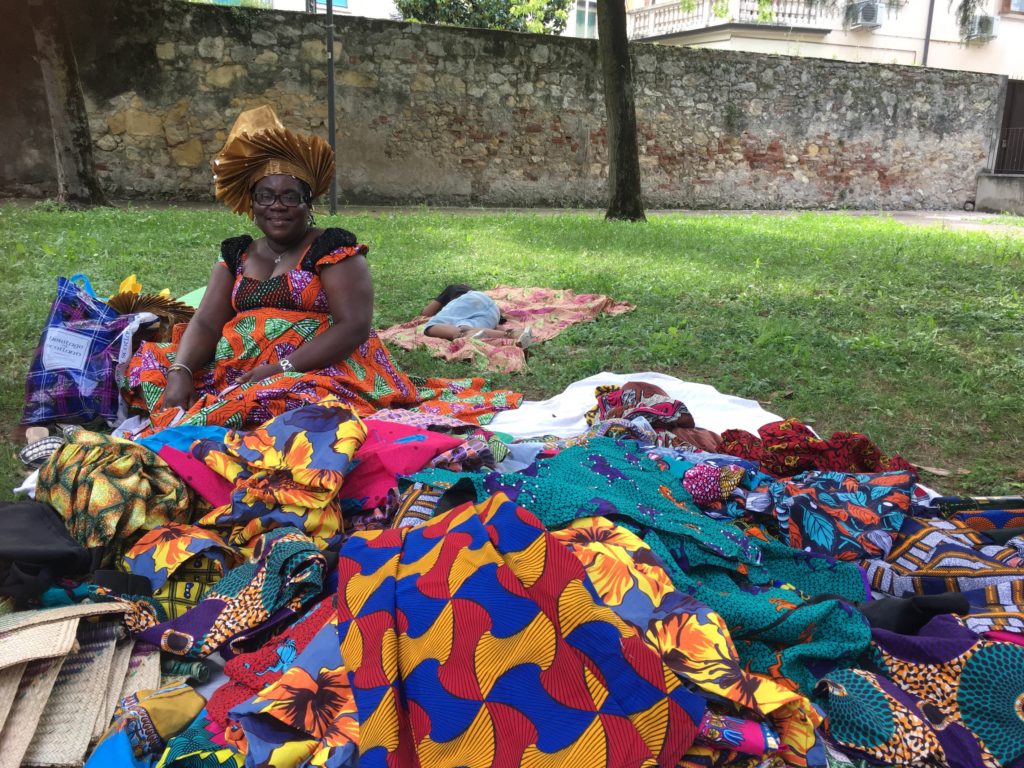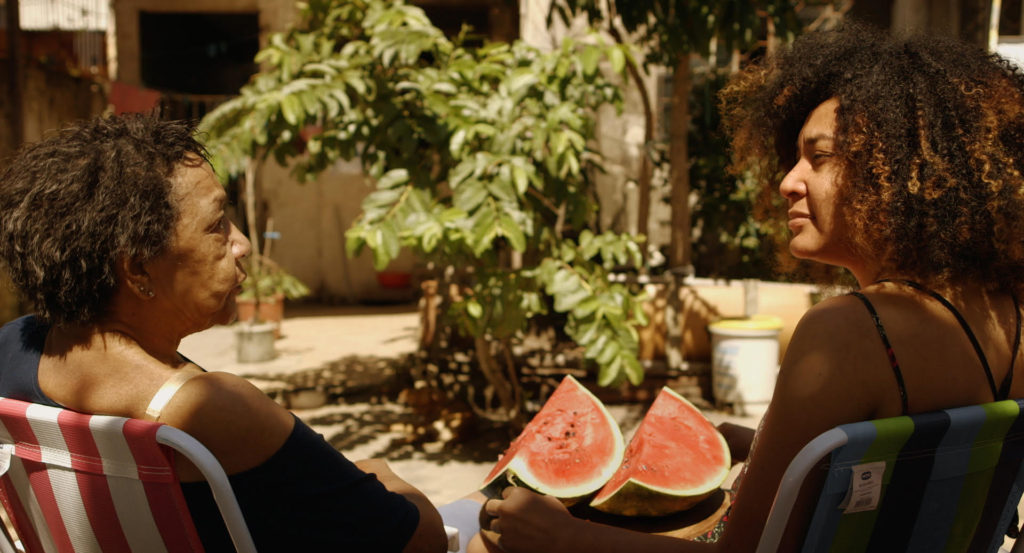A conversation with Christiana Opoku Afriyie, founder and Editor-in-Chief of The Chritical.

At the end of 2021, Christiana Opoku, now a final year Multimedia Journalism student at Glasgow Caledonian University, was finding her voice in Journalism when she realised how compelling conversations and nuanced opinions in her Instagram driven her. So, she thought about creating a platform where people could express themselves as they are, regardless of any socio-political affiliation.
Christiana is now leading The Chritical, an independent student publication based in Scotland with a team of young journalists and creatives from around the world, available online and in print.
This month they launched Issue 02, demonstrating how the project matured visually and editorially, showcasing 109 pages fetching a series of features, photo stories, and interviews. All this with no external resources.
“All in all, the overall commitment and passion demonstrated day in and day out by all team members is a source of strength and encouragement. Witnessing the members recognise an improvement in their abilities or seeing an idea come to fruition is a joy to my soul.”, explains Christiana.

The cover of the magazine is a project in collaboration with Migrant Women Press “Migrant Voices”, uplifting migrant women’s experiences beyond stereotypes and negative perceptions of race and migration.
“Migrant Voices is a testament to our independence,” says Christiana.
“It is my deepest hope that whoever grabs a copy of this edition will be enchanted by not only the stunning faces of our four featured migrant women but also by their charming and confident aura that radiates from the pages.”
The Chritical is planning a team restructure and recruiting new members. A monthly newsletter is also one of their 2023 goals, as well as reaching out and collaborating with creative groups, publications, and organisations. “To build positive and impactful campaigns and projects.”
Interview with Christiana Opoku
Migrant Women Press: Introduce yourself.
Christiana Opoku: Although most people in my professional and private life know me as Chris, my full name is Christiana Opoku Afriyie, and my Ghanaian name is Abena Afriyie. When I moved to Scotland, I remember deciding to go by Chris because people could not pronounce my first name correctly. I recently reconciled that I should not compromise with others about something as vital to my identity as my name. Some still know me by Chris, but I’ve requested close friends and co-workers to call me Christiana instead.
I moved to Scotland six years ago from Italy after 13 years, and apart from English, my third language, I speak fluent Italian and Twi and have intermediate knowledge in Spanish and French. This summer I will be graduating from a Multimedia Journalism course at Glasgow Caledonian University, and I am dreaming to work in magazine production in the future. I have a love-and-hate relationship with hill climbing, pizza and hot weather.
Experiencing these disparate realities encourages me to strive harder to become a better version of myself with what I’ve been generously provided.
MWP: You are from Ghana, grew up in Italy and now live in Scotland. How have all these experiences shaped your life?
CO: Funnily enough, I did not know what to say when people asked me where I was from. Depending on my location and social surroundings, my answer changed. I moved to Italy when I was three years old and relocated to Scotland 7 years ago. Strangely, I feel Ghanaian the further I am from my country. It’s like my soul craves to be nurtured by the motherland the longer it is deprived of its presence.
Now, when someone asks me where I am from, I say that I belong to Ghana, I am from Italy, and I live in Scotland. Living in these different cultural, economic, and social atmospheres has truly made me whole. I’ve learnt to appreciate the aspects that shape the human experience, for example, access to education. In Ghana, some villagers cannot take their kids to school, so education is a privilege.
But in Scotland, the abundance of institutions and support causes a lack of appreciation for education. Another example is the lack of job opportunities for young people in Italy or the total absence of diverse communities in certain levels of education or job fields.
Experiencing these disparate realities encourages me to strive harder to become a better version of myself with what I’ve been generously provided.

Christiana Opoku
MWP: What motivated you to create The Chritical? What is the publication’s aim?
CO: Now, I wish I had a long inspirational story about how The Chritical began, but it is very simple. In fact, the time between the idea and implementation was about the length of a month. In December 2021, after spending the previous two years feeling uncertain about the type of journalist that I wanted to be, I realised that I quite liked expressing nuanced opinions on my Instagram account and was often dragged into some refreshing conversations with people. So, I began wanting to deliver and share those compelling conversations.
In a society where everyone wants you to be on their side, I wanted to challenge people to challenge their chosen side. I wanted to dare more. And this is why The Chritical was created.
We support freedom of speech that is compassionate, reasonable, and nuanced. This is why the magazine’s vision is to empower and comfort society with a diversity of thought that goes beyond external appearance, stereotypical narratives, and mainstream ideas.
Society is saturated with opinions. You can be loyal to any social, political and intellectual group and forever join their battles against the opposition. But this magazine is here to tell people they just need to be loyal to themselves.
Regardless of any socio-political affiliation, it is okay to think for yourself because it does not own you. It is okay to stand alone as long as you stand confidently in your beliefs, or else you get carried away by the crowd.
I was carried away for years and allowed groups of people to dictate how I should feel about my sex, skin colour, ideas, and experiences. When I started to rebel and say, ‘Wait a minute, just because I am black does not mean I support this’, I found true freedom. Discrimination, for me, is also expecting someone to think a certain way by their outer appearance to treat them differently when they fail your expectations.
The Chritical is a place that provides a platform for conversation in a society where intellectual independence and freedom of expression are threatened. Although it is based in Glasgow, the magazine is independently run by a global team of volunteers from various countries and cities.
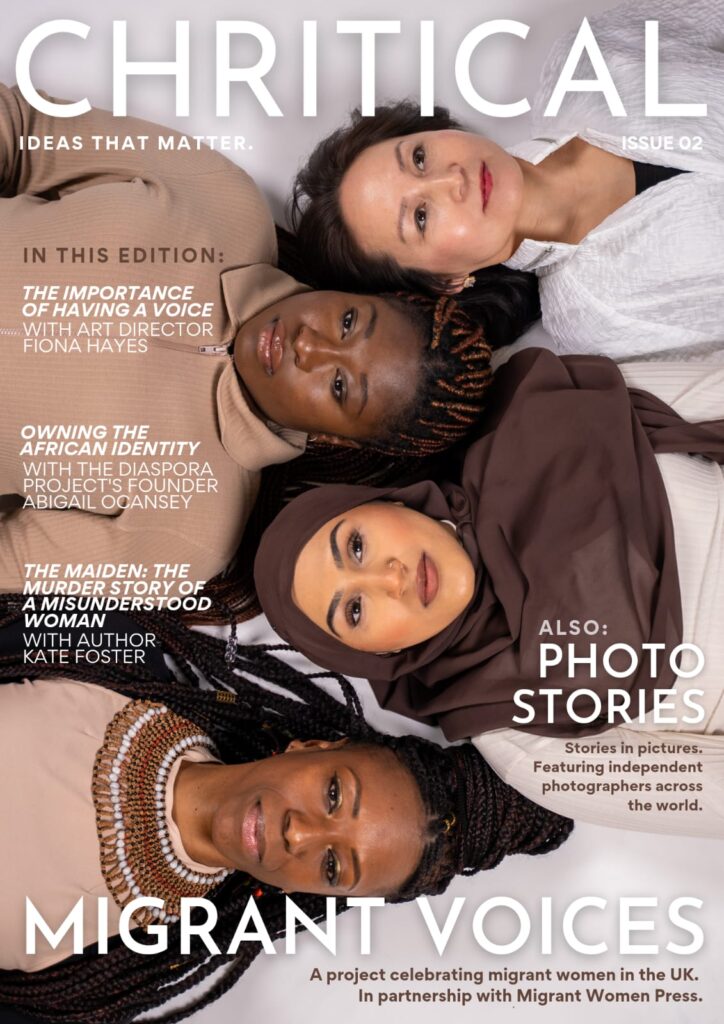
We support freedom of speech that is compassionate, reasonable, and nuanced. This is why the magazine’s vision is to empower and comfort society with a diversity of thought that goes beyond external appearance, stereotypical narratives, and mainstream ideas.
It is to let people know that it is okay to think differently. We recognise that ideas are not always black and white; they can be shades of grey or pale yellow. Ideas matter.
Our team of talented volunteers reflect the essence of this publication. Although we might identify with disparate ethnic groups and belief systems, we seek to understand and respect our differences. We hope The Chritical gives readers content that questions their mindset and internalised preconceptions.
Migrant Voices is a testament to our independence.
MWP: What motivated you to create the project Migrant Voices?
CO: We live in a society that categorises groups of people under certain traits, attitudes, and perceptions. There’s no doubt that migrant people are seen in a specific, mostly negative light. I’m not talking about only racism and discrimination; I am also talking about those who view migrant people as weak, incapable and deserving of their pity. I’m talking about those who extend a hand of help to struggling communities to stroke their egos and call it a good deed done for the day. We, migrants, are more than a commodity.
One might see starving faces of children on billboards or disaster-stricken cities in the media and associate that with the entire experience of the migrant. But it must be stated that our obstacles and struggles do not own or define us. For surviving the world’s adversities and fighting against all odds, we are damn strong if you ask me.
People use migrants to exercise their fetishes of supremacy. “Migrant Voices” is a testament to our independence. It parades the inner beauty and strength of migrant women, which shines on the outside. Being migrants is not our downfall but an avenue for our success.
We shift blame to “society” as if it was an imaginary, fictional villain in another dimension, forgetting that each of us is a member of that society. We are what we create and perpetuate.
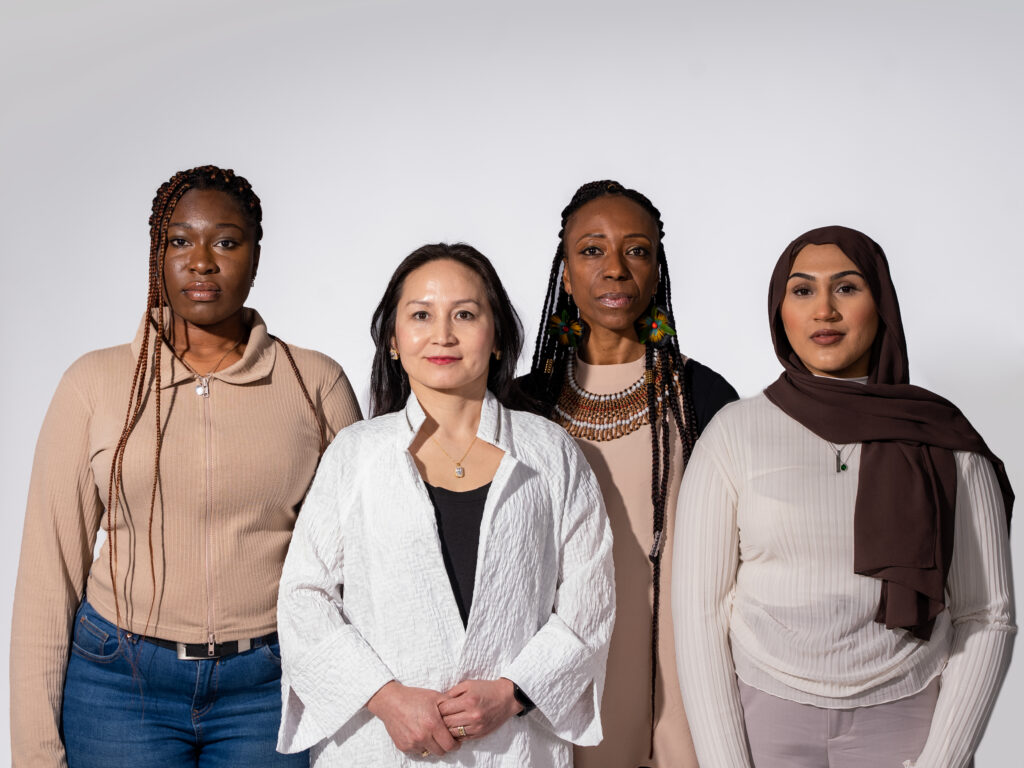
“Migrant Voices”, from left to right: Emmanuela Sampong, Uuganaa Ramsay, Juliana da Penha and Zainab Ashraf. Photo Credit: Maxwell Frimpong & Toni Akitunde
MWP: What are your thoughts on how migrant women are portrayed in the media?
CO: The media portrays migrant women in many ways depending on the country of origin. For example, Asian women are often portrayed as damsels in distress who are submissive, lacking personal will, and vulnerable. Black Americans are portrayed as loud, confrontational and vulgar beings. African women are portrayed as mothers of numerous children they can’t feed. There is a specific message for every ethnic group.
Although some reality may inspire media portrayal, it is merely a general depiction. It does not consider the detailed facets of these communities and the individualistic characteristics of each member.
I admit that there are aspects that African women share which rely primarily on upbringing and familiar socio-political surroundings, but this does not mean that the experience of one, or a ton, is the experience, or identity, or again the reality of all.
I wish the media would acknowledge these differences in background and stop conveying monotone messages to audiences about ethnic groups.
Although some reality may inspire media portrayal, it is merely a general depiction. It does not consider the detailed facets of these communities and the individualistic characteristics of each member.
MWP: As a Migrant woman, how do you want to see your image portrayed?
CO: As a Black African woman, I don’t particularly appreciate how Black women are portrayed in the media. However, I’m not fond of how they represent themselves to cater to hungry audiences. Especially in the Western and American mainstream media, the Black woman is depicted as aggressive and hypersexual. This plants seeds of discord between Black American and African women who abide by a very contrasting set of values and rules, even if some do not like to admit it.
The typical African woman is more traditional in a sense. This is only true, and only those who have witnessed these communities would know.
I want to see more of the African woman’s intelligence, inner modesty, exquisite class, and unique entrepreneurial spirit on screens.
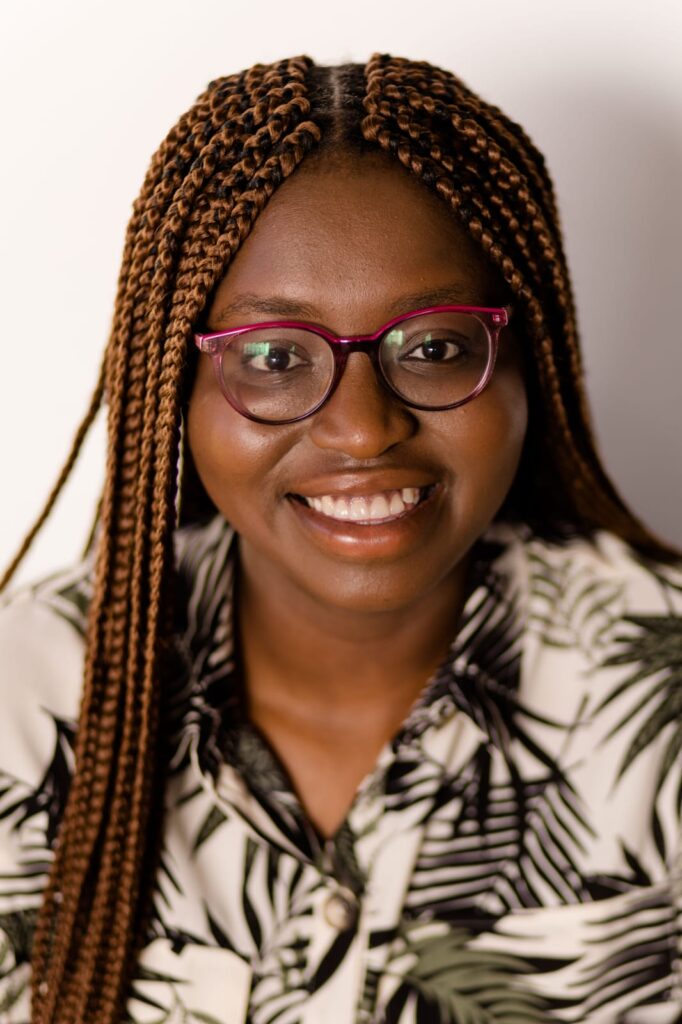
Christiana Opoku
MWP: You were shortlisted as the “Student of the Year” at the 44th Scottish Press Awards. What is the feeling about this nomination?
CO: Since I chose journalism as a career, I’ve always had thoughts about making the wrong choice since not many people in my ethnic group choose it.
Therefore, for my passion to be recognised in such a way in a field where I do not see myself represented often is honestly empowering. Just the nomination itself is a confidence boost. I’m looking forward to the ceremony and networking with everyone else.
MWP: You did all The Chritical work in a triple commitment as you are a worker-student and running an independent publication. How do you feel about it?
CO: It is obvious that it has been hard to coordinate these aspects of my life and find time for everything; however, The Chritical is a passion project. And the trust our team has in me to lead this keeps me going time and time again. Also, focusing on the magazine after returning from work or finishing an assignment is stress relief. It keeps me calm, motivated, and driven by the vision we are sharing all together and the incredible potential we have.
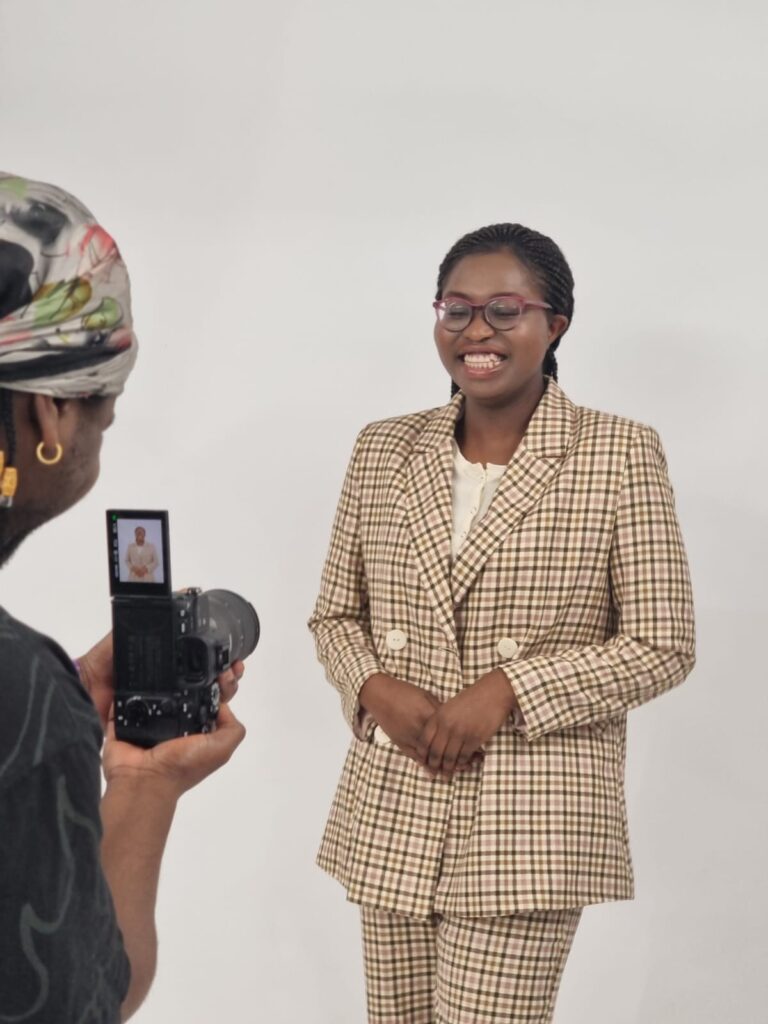
Christiana Opoku
MWP: How do you envision The Chritical in five years?
CO: In five years, I hope the magazine will have created, shaped and curated many more projects like Migrant Voices and will have given space to compelling, diverse voices.
I pray that the team grows more and more and that readers will be influenced even slightly to be truly tolerant of those who think differently from them.
I hope The Chritical will be a publication that can economically sustain itself and provide paid opportunities to students and the young creatives that join the team.
I also hope that we will continue to support them in the growth of their skills and passions and instil them with the confidence to express themselves freely and boldly.
https://thechriticalmagazine.com/
Twitter: @thechritical
Instagram: @thechritical

